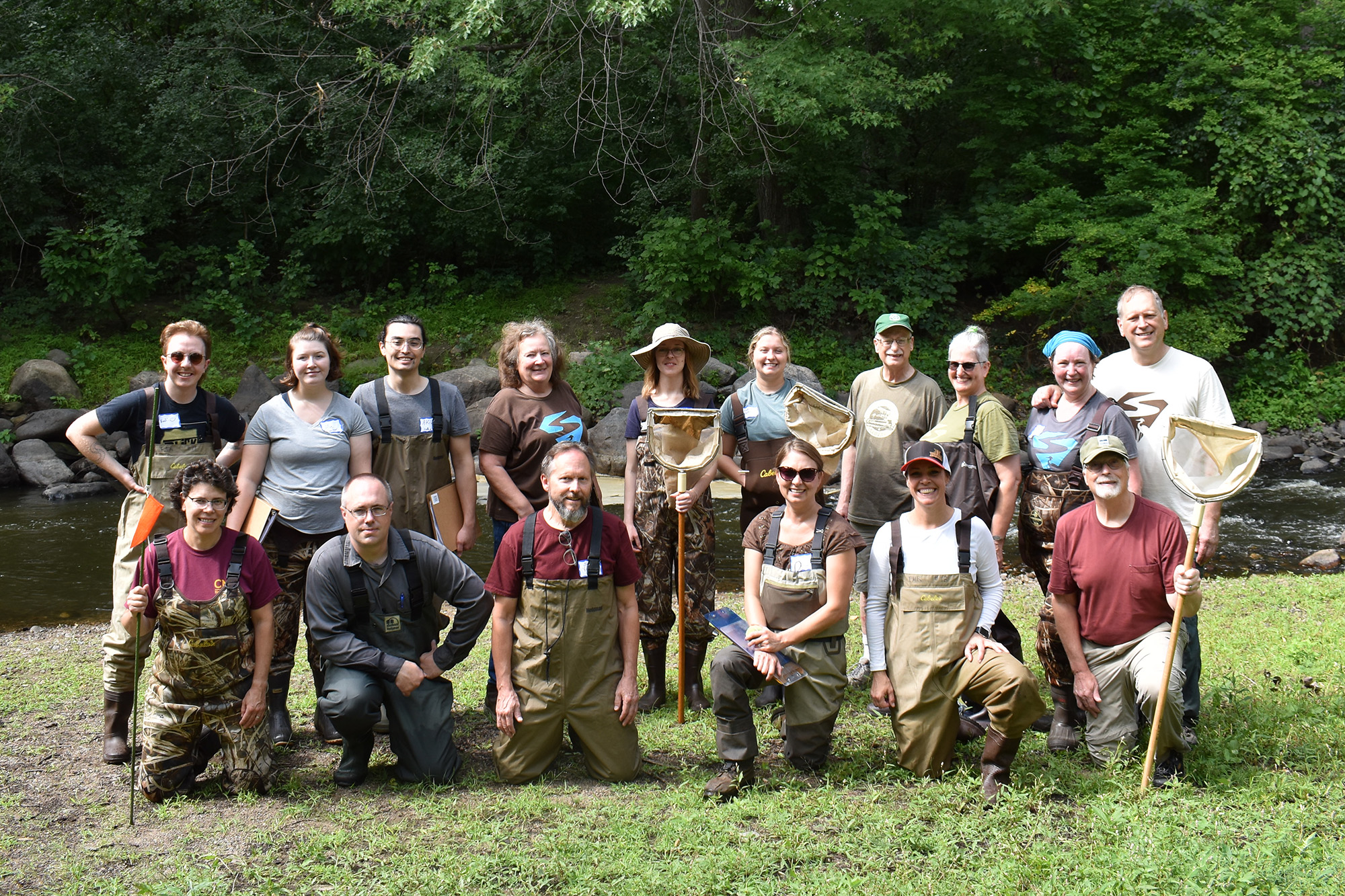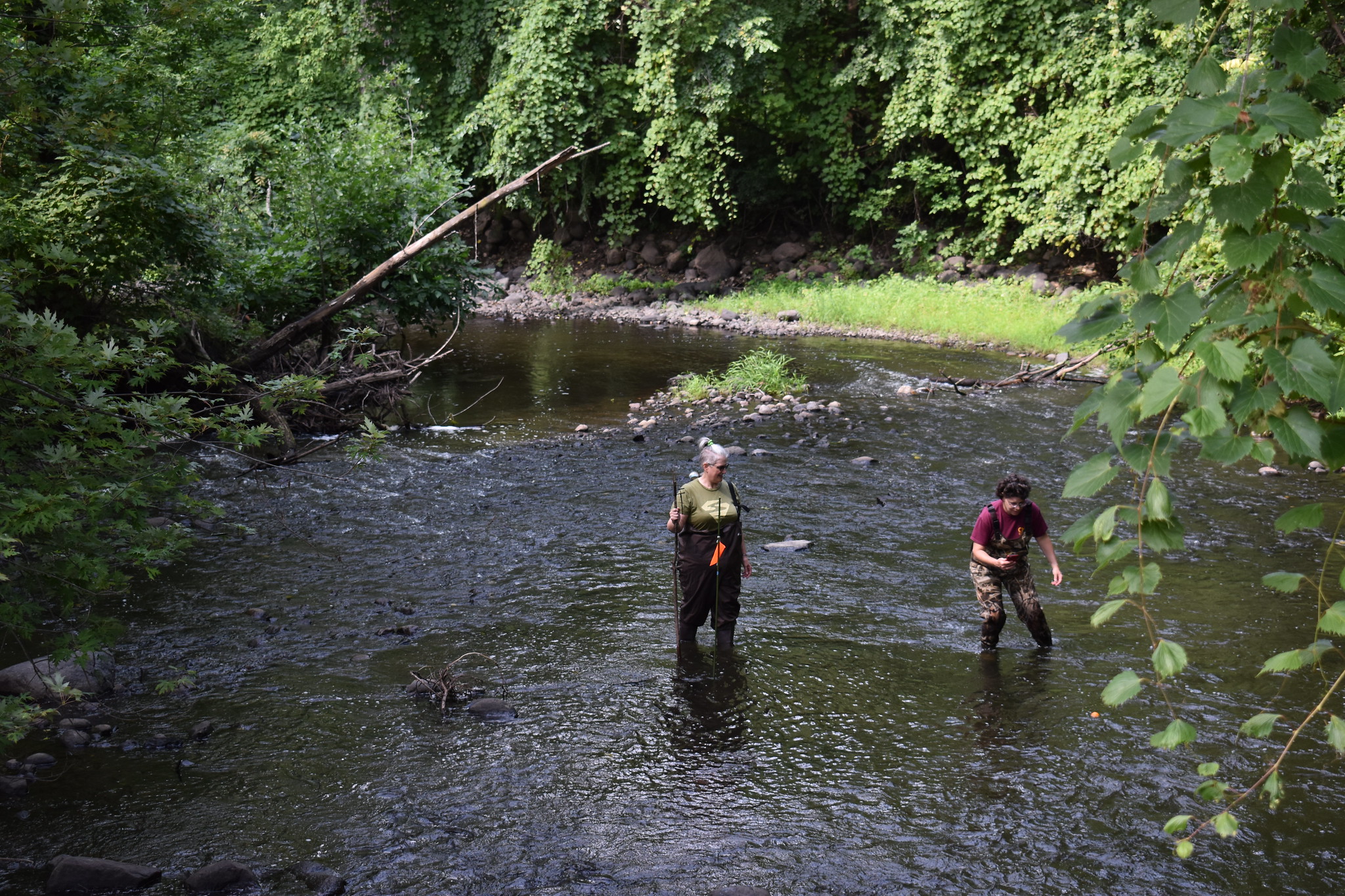Wade into your watershed: Monitor stream health in the Rice Creek Watershed District

If you're looking for a rare, in-depth experience contributing to the health of your watershed without earning your master's degree, this is the perfect opportunity.
Since 2006, FMR has coordinated the Stream Health Evaluation Program (SHEP), in the Rice Creek Watershed District. Scientists train SHEP volunteers to evaluate stream biological health by sampling benthic macroinvertebrates, small stream-dwelling bugs, then identifying these samples to assess stream quality. Volunteers contribute roughly 30 hours between July and November.
Preference is given to returning volunteers and Rice Creek Watershed District residents. (Check here to see if you live in the watershed.) No experience is necessary, as training will be provided. All are welcome. However, potential volunteers should seriously consider the tasks (see accessibility notes below) and hours involved before committing to the SHEP program.
You can read more about the project on our SHEP project page. Below, find out what it's like to volunteer with this exciting, unique program.
Accessibility
Volunteers will spend time wading in streams, which will involve wearing waders, walking through brush, climbing down streambanks and walking in deep water across uneven streambeds. The lab portion of the program will involve using microscopes to identify macroinvertebrates. Volunteers are encouraged to attend and participate in whatever activities they are comfortable with. For additional information or to request an accommodation, please contact us at shep@fmr.org or 651.477.0934.

Stream Health Evaluation Program volunteers work together to collect data on stream health.
What to expect as a SHEP volunteer
- SHEP volunteers should expect to spend roughly 30 hours on the program, including the kick-off celebration, trainings, a stream collection day and lab days.
- A kick-off celebration will be held in mid-summer. The event serves as a time to announce and celebrate the previous year's results and welcome all new volunteers. (2 hours)
- Trainings will be led by a professional scientist from Bolton & Menk and are scheduled for two three-hour sessions on Saturday mornings in August and September. Both sessions are required for newer volunteers. There is no prep work. You will be in the hands of an excellent trainer who will teach you everything you need to know at the training and throughout the program. (6-8 hours)
- Each volunteer is assigned to a team of 10-12 people. Assignments aim to ensure a variety of experience levels and number of years on the program. Each team has a predetermined lead or co-leads who, among other duties, will coordinate the sampling and analysis schedule with you and the other team members.
- Teams will monitor reaches of local streams and lakes over one day in August and early September. We can provide waders, but you should expect to get wet. Each team samples three sites. Depending on your team, all three sites could be sampled on the same day or scheduled across multiple days. (6-12 hours)
- Teams identify collected macroinvertebrates in the lab from late September to November. Depending on the number of macroinvertebrates collected by a team, this could take only one lab session or up to three lab sessions. (6-12 hours; not all volunteers are required to make every lab session) Additional training and support will be provided closer to this time.
- Scientists review SHEP's work in winter and early spring and, in partnership with FMR staff, submit a final report to the Rice Creek Watershed District regarding the data and what it indicates for local water quality. FMR announces the results the following spring or early summer. SHEP volunteers typically reach impressive accuracy levels of over 90%! See previous reports.
Do I have to buy anything?
No. All equipment and training materials will be provided, as well as dinner and/or refreshments at the kick-off celebration and training events. We appreciate your time and commitment!
To apply to volunteer
Thank you for your interest! We are no longer taking applications for this season.
What about COVID-19?
We're watching the CDC and Minnesota Department of Health guidelines closely. If plans change based on their recommendations, we will be in touch with updates. (Be sure to add volunteer@fmr.org to your contacts so updates don't land in spam.) And we'll update this page if anything changes. (You can read more about our policies here.)
We have adapted SHEP during the pandemic, and we will remain flexible to ensure the safety of our volunteers.
We will offer hand sanitizer throughout the program. Volunteers are encouraged to bring their own masks and wear them when in close proximity to others.